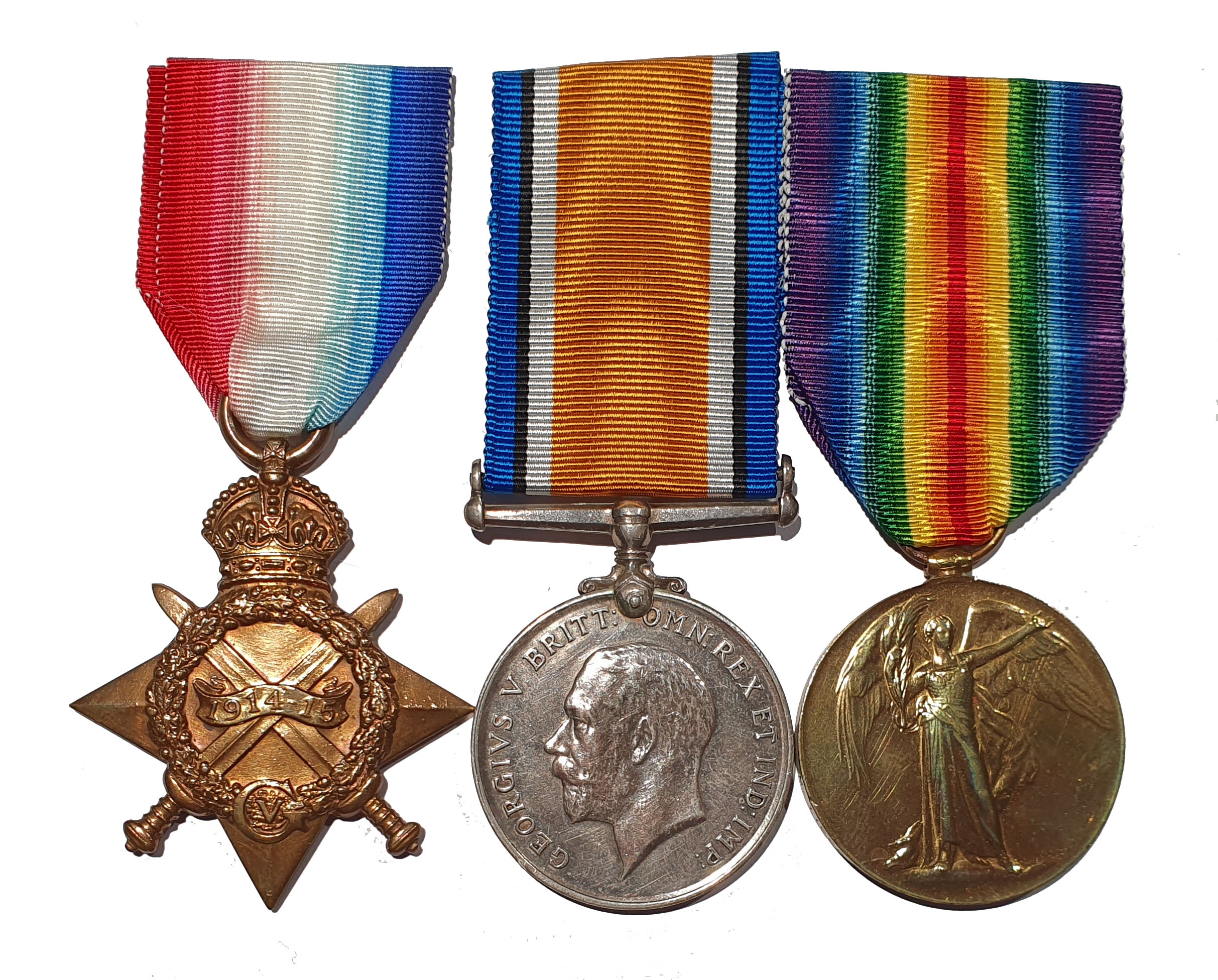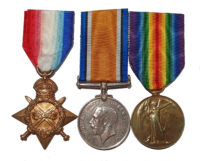Description
A Great War, Battle of Jutland, Trio awarded to Carpenters Crew, Joiner 4th Class Harry Jarmond Brouard, H.M.S. Hercules comprising, 1914-15 Star, (M.11668 H.J. Brouard, Car. Cr. R.N.), 1914-1920 British War and Victory Medals, (M.11668 H. J. Brouard. J.R.4 R.N.), very fine
Harry Jarmond Brouard was Born in Guernsey, Channel Islands on the 19th of August 1879 giving his occupation as Joiner. He joined the Royal Navy on the 2nd of February 1915 being Rated as “Carpenter Crew” He served Victory II until the 25th of February 1915, Fisgard 26th of February 1915 to 1st March 1915, Hercules 2nd of March 1915 to 24th of February 1919 when he was Discharged to Shore.
Revenge (left) and Hercules (right) en route to the Battle of Jutland, 31 May 1916
On 31 May, Hercules, now under the command of Captain Lewis Clinton-Baker, was the twenty-third ship from the head of the battle line after deployment as part of the 6th Division of the 1st BS. During the first stage of the general engagement, the ship was straddled by five shells fired by a German dreadnought at 18:16. she fired at the crippled light Cruiser SMS Wisesbaden: around 18:20. Hercules engaged a German dreadnought beginning at 18:25 with seven or eight salvos of her own. The poor visibility greatly hampered her return fire and was a problem for the entire battle. At 19:12, the ship opened fire at the battlecruiser SMS Sevdlitz, and probably scored two hits. One of her HE shells penetrated through the upper superstructure and caused minor splinter damage. The second HE shell burst on hitting the upper hull armour, which dished in the armour plates and caused moderate flooding. About five to ten minutes later, she engaged several German destroyer flotillas with a few salvos from her main armament without result. Hercules was then forced to turn away to avoid several torpedoes, one of which was believed to have passed very close. Marlborough, flagship of the division, was hit by a torpedo and forced to reduce speed, which caused the division to fall behind the main body of the Grand Fleet. They did not re-join until the afternoon of 1 June, as the fleet was headed for home. Hercules received no damage and fired a total of 98 twelve-inch shells and 15 shells from her four-inch guns during the battle.
Sold with copy Service papers confirming Service on H.M.S. Hercules from March 1915 – February 1919




